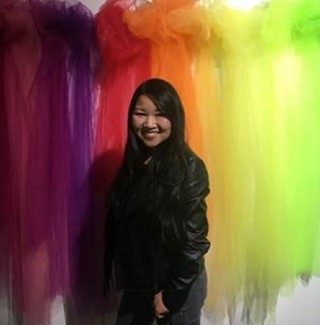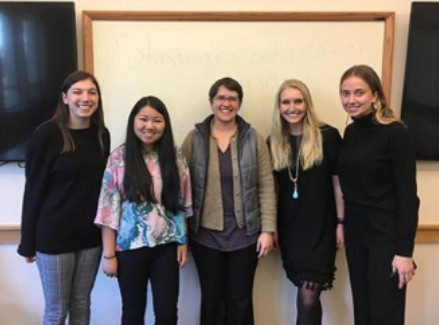Five Classroom Lessons I Will Use in my Strategic Communication Career
By Olivia Hyde, senior strategic communication major
Why come to the University of Denver? As a tour guide, I have spent the last four years finding different ways to tell prospective students and their parents why they should choose DU. In my final quarter, I realized what makes DU different. It is DU's dedication to ensuring that students have professional experience before they graduate.
In my Strategic Communication capstone seminar, taught by professor Nadia Kaneva, we partnered with local nonprofit coalition Metro Nature Alliance (Metro DNA). Metro DNA connects nonprofits, government organizations, research institutions, and private companies with the goal of championing environmental preservation and equal access to nature for all residents in the area.
The task for our class was to analyze and suggest improvements for a variety of the organization's communication materials and to enhance Metro DNA's ability to gain partners. This experience gave me five major takeaways that will influence my work in my career as a strategic communicator.
1. Know the Client. Whether in an agency or an in-house setting, knowing the client is the first step towards effective representation. Agencies face a challenge because strategic communicators must represent an organization as outsiders. This was the case in our partnership with Metro DNA as well.
In the beginning, most of the class, myself included, couldn't stop thinking of Metro DNA as a company that provides something tangible to its partners. However, Metro DNA Director Dana Coelho explained that the coalition "isn't trying to change everything," but to "set goals and indicators to bring groups together" and help them work together to preserve nature in Colorado. This was key in understanding the client and their purpose.
2. Team Communication is Key. Strategic communication is a very collaborative field, which means internal communication plays a vital role in the success of a project. While everyone on our team had different roles, we were all working towards the same end goal.
As with any group project, it was important that everyone was on the same page. Writing a communication audit for Metro DNA provided an extra communication challenge because we had to create a cohesive document. This required communication before writing to ensure there would be no duplicated parts, but also during the editing process to help us achieve a unified voice.
3. Produce Your Best Work Every Time. In strategic communication the work produced could go anywhere, especially in the increasingly digital world we live in. The materials we produced in our class were given to Metro DNA and from there they were out of our control. That is why we wanted to produce the best work we could. Also, everything we did would represent Metro DNA, so we wanted to show all of the coalition's partners what we were capable of doing.
4. Learn How to Give Constructive Criticism. Constructive criticism helps to improve an organization, but if framed the wrong way it can be disrespectful to the client. It is important to acknowledge the work the client has already put into its communication strategy. Because our class presented our findings and materials to Metro DNA, we wanted to be respectful of the work it had already put into various communication channels. This also meant being aware of the resources and challenges the organization faced and adjusting our critiques to those factors.
5. Know your Audience. Effective communication materials cannot be produced without understanding the target audience. In my strategic communication major I learned that all messages should be appropriate, meaningful, memorable, understandable and believable for the audience. Our team focused on targeting large nonprofit organizations in Denver, so we had to think about how to tailor our materials and make them appropriate, meaningful, memorable, understandable and believable for the large nonprofit audience.
As I look forward to graduation, it is important to think about what I have gotten out of my time at DU and how that will affect the next steps in my life. I look forward to continuing to grow and work in the field of strategic communications. I will take what I have learned from the partnership with Metro DNA and apply those lessons to whatever I do.
Pictured in the group photo, left to right: Jane Zunamon, Olivia Hyde, Dana Coelho (Metro DNA Director), Annika Galloway, Juliet Flynn. Photo credit for the group photo: Avery Ohsman. Photo credit for the portrait of Olivia: n/a




